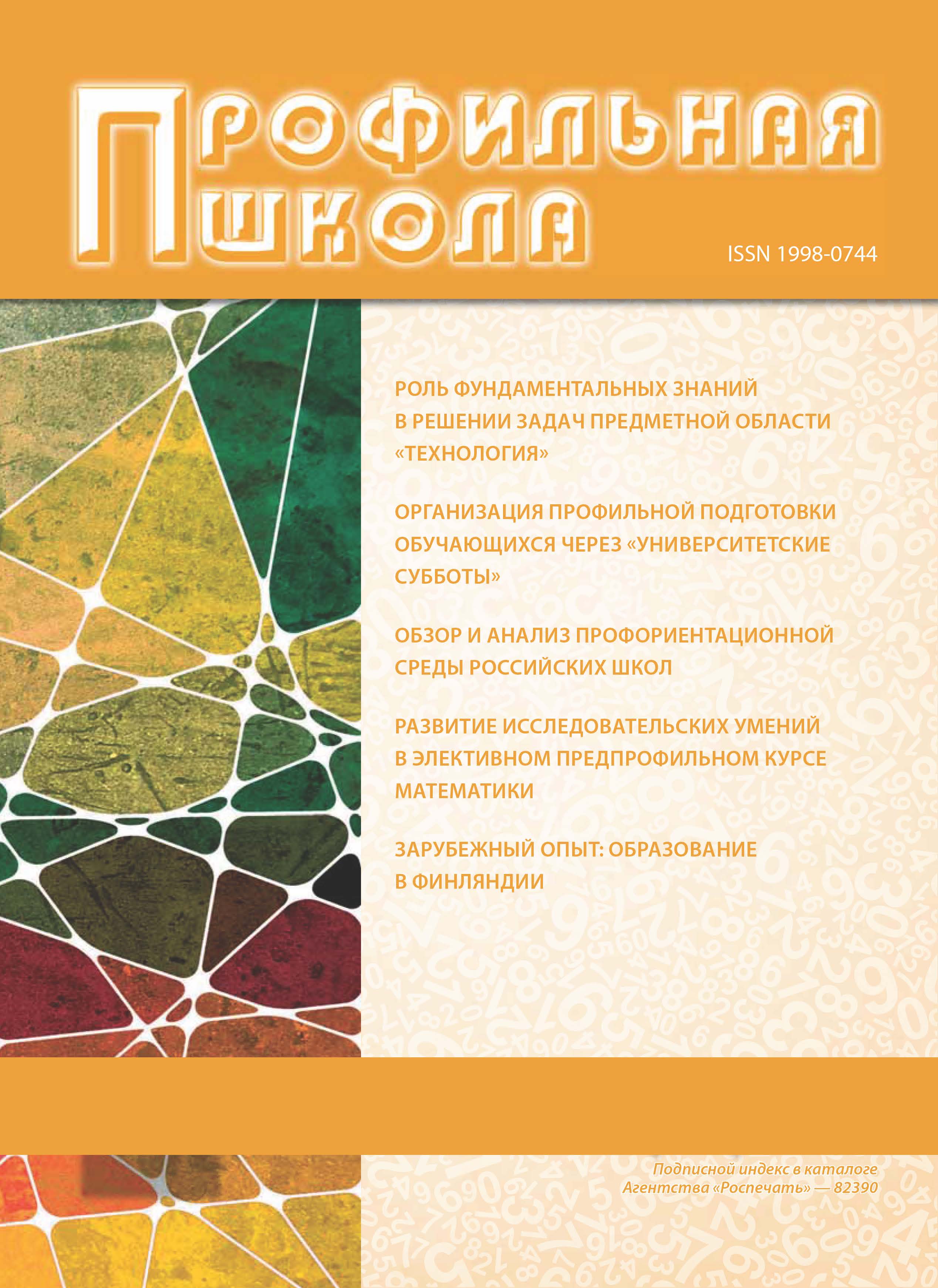from 01.01.2019 until now
Elec, Lipetsk, Russian Federation
The article is devoted to the study of the peculiarities of the stochastic worldview of high school students. Stochastic world outlook lays the landmarks of creative and practical activities, helps to create favorable conditions for development of intellectual potential of a pupil. Digitalization in education determines the dominant nature of both the active use of modern methods, tools and technologies of education, and the formation of students' digital skills, training in data processing and analysis, which is closely related to the teaching of stochastics and indicates the relevance of research. In this regard, the untapped potential of stochasticity is greater than any other field of knowledge. Widely used probabilistic-statistical methods contribute to the study of variability and complexity of political, economic, social processes. In this regard, a model of formation of stochastic worldview of high school students in the conditions of digitalization of mathematical education is developed. This model is a set of educational and digital information content, which gives the results of the educational process a new quality of education, allows you to realize the integrity of the worldview, values and motivational constructs, creates the necessary conditions under which it becomes possible to generate knowledge by students themselves based on self-development and self-actualization, their active and productive creativity.
stochasticity, stochastic worldview, digitalization, mathematical education, secondary general education
1. Anan'ev, B.G. Chelovek kak predmet poznaniya [Man as a subject of cognition]. Moscow, 2010. 282 p.
2. Vartanova E.L., Vyrkovsky A.V., M.I. Maksienko M.I., Smirnov S.S. Industriya rossiiskih media: cifrovoe buduschee [Russian media industry: digital future]. Moscow, 2017. 160 p. EDN: https://elibrary.ru/YTBQMT
3. Gorbunova N.V., Boldyreva E.P. Cifrovizaciya kak prioritetnoe napravlenie modernizacii rossiiskogo obrazovaniya [Digitalization as a priority direction of modernization of Russian education]. Saratov, 2019. 149 p. EDN: https://elibrary.ru/ZBCKHZ
4. Dvoryatkina S.N. Teoretiko-metodicheskoe obespechenie fraktal'nogo formirovaniya i razvitiya veroyatnostnogo stilya myshleniya v protsesse obucheniya matematike [Theoretical and methodological support of fractal formation and development of probabilistic style of thinking in the process of learning mathematics]. Moscow, 2020. 440 p. EDN: https://elibrary.ru/JCOPJM
5. Polyakova T.A., Shirshova T.A. Znachenie stokhasticheskoy linii v formirovanii predstavleniy uchashchikhsya o prikladnykh vozmozhnostyakh matematiki [The significance of stochastic line in the formation of students' ideas about the applied possibilities of mathematics]. Nauchno-metodicheskij elektronnyj zhurnal Koncept [Scientific and methodical electronic journal Concept]. 2016, I. 5, pp. 188-194. EDN: https://elibrary.ru/WAEBIT
6. Samsonova S.A. Metodicheskaya sistema ispol'zovaniya informacionnyh tekhnologij pri obuchenii stohastike studentov universitetov. Dokt. Diss [Methodological system of using information technologies in teaching stochasticity to university students. Doct. Diss.]. Moscow, 2005. 33 p. EDN: https://elibrary.ru/NJTMKL
7. Selutin V.D., Terekhova L.A. Usilenie vnutripredmetnyh vzaimosvyazej v matematike na baze stohastiki (kogerentno-integrativnyj podhod) [Strengthening intrasubject interconnections in mathematics on the basis of stochasticity (coherent-integrative approach)]. Saarbrucken, 2011. 259 p. EDN: https://elibrary.ru/VTEQXL
8. Shcherbatykh, S.V. Metodicheskaya sistema obucheniya stohastike v profil'nyh klassah obshcheobrazovatel'noj shkoly. Dokt. Diss [Methodological system of teaching stochasticity in the profile classes of a general education school. Doct. Diss.]. Moscow, 2012. 23 p. EDN: https://elibrary.ru/QIHDWX
9. Bersin J. (2017) The Disruption of Digital Learning: Ten Things We Have Learned. Available at: https:// joshbersin.com/2017/03/the-disruption-of-digital-learning-tenthings-we-have-learned/2017
10. Koole M, Janice L, McQuilkin, Mohamed Ally. Mobile Learning in Distance Education: Utility or Futility? // International Journal of E-Learning & Distance Education. 2010. Vol. 24. I 2. P. 59-82.
11. Shcherbatykh S.V., Lykova K.G. Digitalization of mathematical education and its influence on the formation of stochastic worldview through the development of probabilistic thinking style // CEUR Workshop Proceedings. Proceedings of the 4th International Conference on Informatization of Education and E-learning Methodology: Digital Technologies in Education (IEELM-DTE 2020). 2020, pp. 96-102. EDN: https://elibrary.ru/NNWSFR






